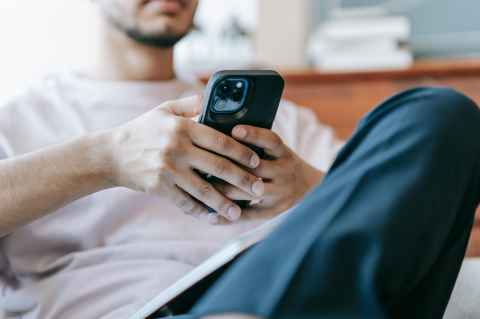Investigating smartphone tracking apps for IBS
This study aims to evaluate the effect of food tracking apps in helping people to understand and monitor their IBS.

Keeping track of one’s diet is a commonly recommended practice for people with IBS. This is thought to help identify foods that can trigger IBS symptoms. However, it is unknown what role smartphone food-tracking apps can play in this process.
What's involved?
Participants will complete a 30-minute study session in person or over Zoom. At this session, you will complete a baseline questionnaire covering your physical and emotional well-being. You will then download a food tracking app to use daily for the next four weeks.
You will be emailed a link to an online follow-up questionnaire two weeks and four weeks after your study session. This will ask about your experience of using the app, any symptoms you have experienced, and your broader well-being. The questionnaire should take 20 minutes to complete.
After the four week timepoint you can stop using the app but will still be emailed a final follow-up questionnaire at the six month mark to see if there have been any lasting changes.
Participants will be given a year's access to the premium version of the tracking app and will go in the draw to win one of ten $100 Prezzy cards.
Eligibility criteria
Participants must:
- Have been diagnosed with IBS, or meet the symptom criteria for IBS
- Have not used a food or symptom tracker in the last year
- Have a smartphone
- Be aged between 18 and 65 years old
- Be able to read and write in English
Further information
Contact details
Grace Lyon
Student researcher
Email: glyo697@aucklanduni.ac.nz
Dr Kate MacKrill
Principal Investigator:
Email: k.mackrill@auckland.ac.nz
Approved by the Northern B Health and Disability Ethics Committee on 26/04/24 for three years.
Reference 2024 EXP 19213